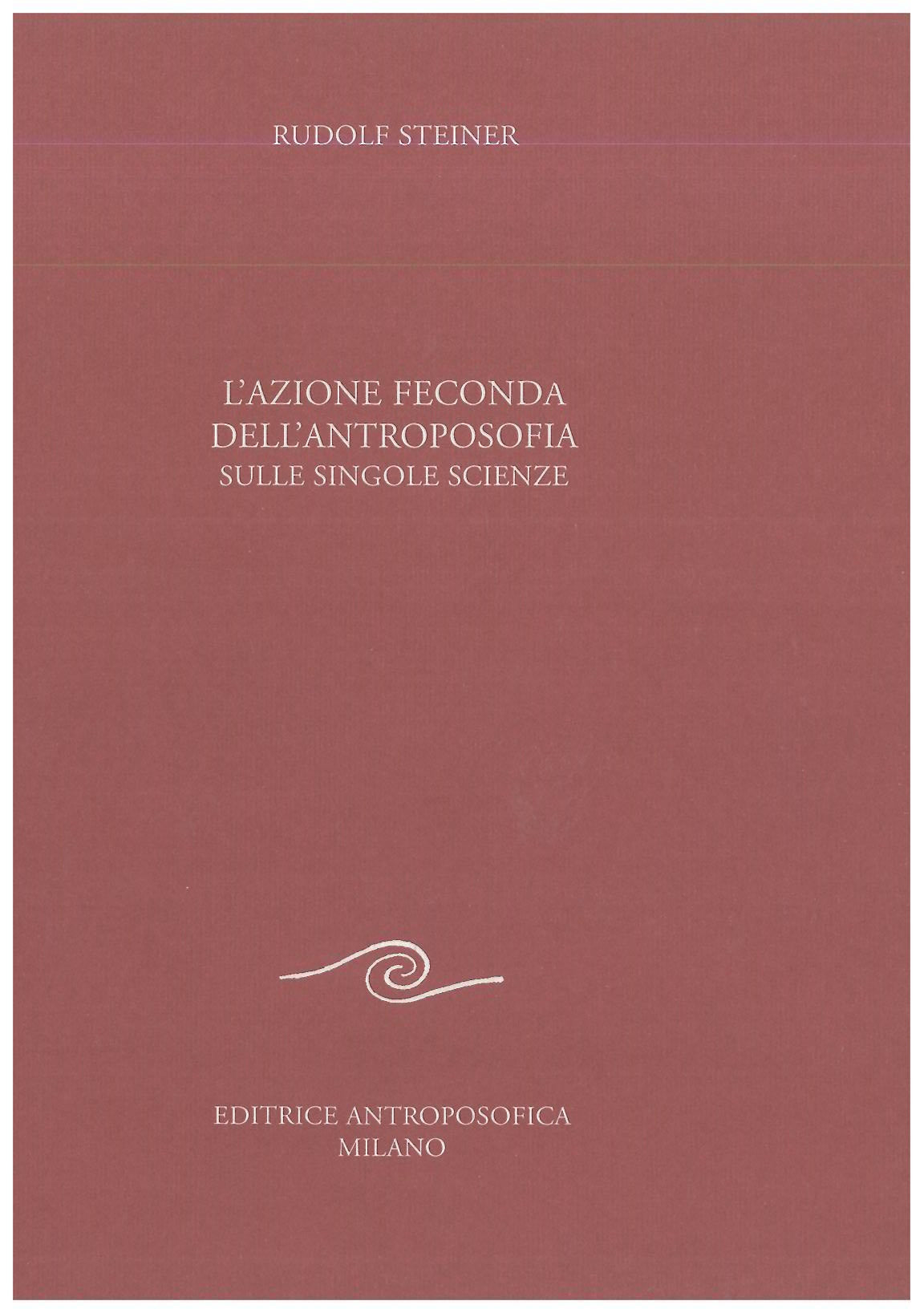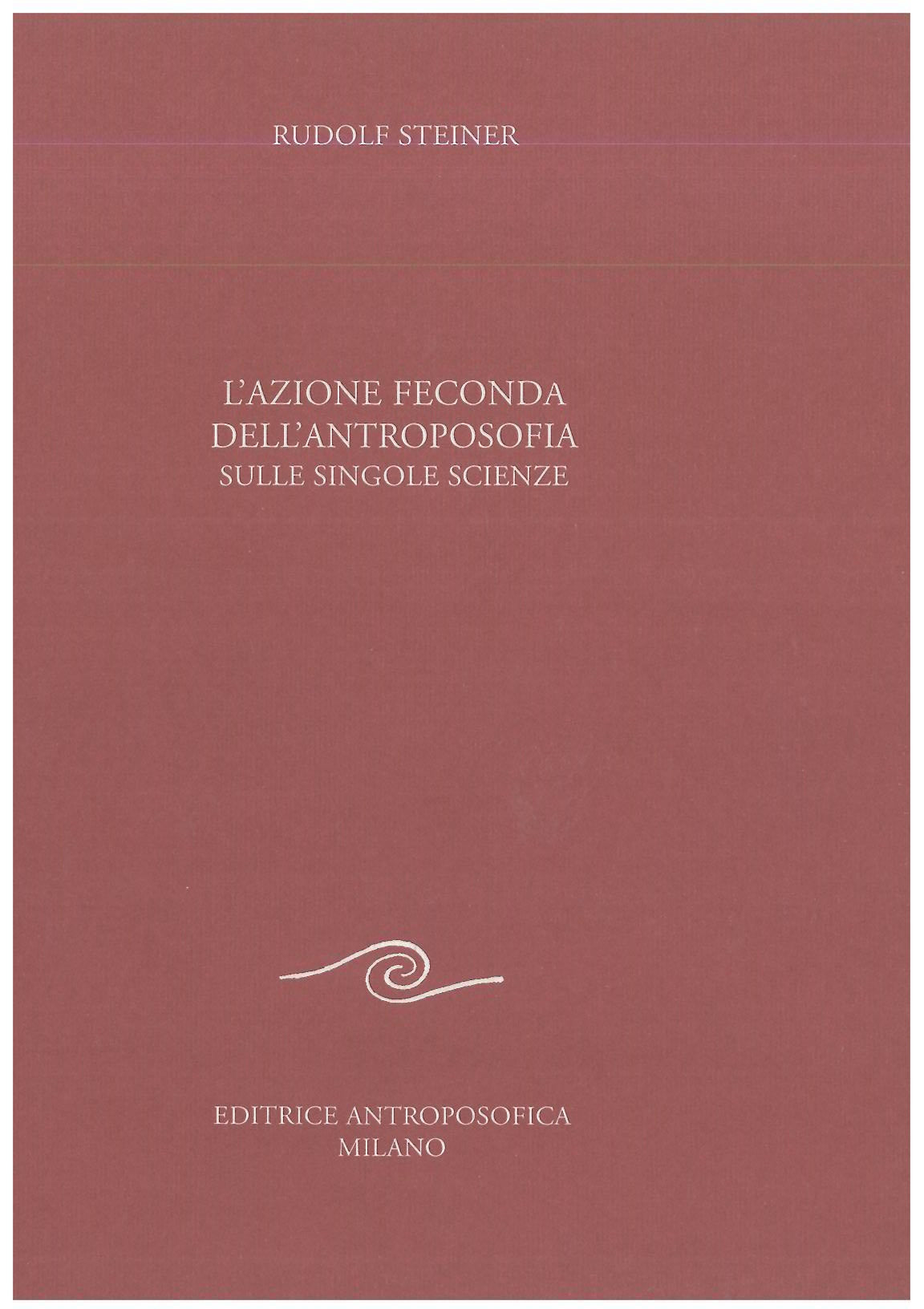76- The fruitful action of anthroposophy on individual sciences - Rudolf Steiner
Have a question?

76- The fruitful action of anthroposophy on individual sciences - Rudolf Steiner
Dettagli
Conferences and discussions held in Dornach during the second anthroposophical university course from 3 to 10 April 1921
"If we perceive the most significant calls of the human heart and soul, we must say: the present demands that scientific knowledge result in what must be found for the inner consolidation of the soul. Contemporary science offers no prospect for achieving of this objective. For this reason, spiritual science believes it must show other sciences how they can be fertilized by true spiritual-scientific research."
Translation by: Mirella Monti
INDEX:
Opening speech Dornach, 3 April 1921 At the end of an era the Greeks formulated the saying: "Man, know thyself!" At the dawn of the future age we must complete it: “...to become free.” We need to take three steps towards freedom: in the interior human experience, in the creative act, even artistic, in the religious experience. To this end, the individual sciences and social life must be fertilized thanks to a spiritual conception of the world.
First conference Dornach, 4 April 1921 Philosophy The significant philosophical work of Ludwig Haller; his criticism of Kantianism. Eduard v. Hartmann and Haller. Kant's journey from Wolff to Hume. Kant the antipodes of Goethe. The evolution of concepts since antiquity. Pure thought according to the “Philosophy of Freedom”. There is no real freedom without pure thought. The problem of modern philosophy: thought constituted by unreal images. Conclusion of the discussion on philosophy
Second conference Dornach, 5 April 1921 Mathematics and inorganic sciences Kant on mathematics and science. Another sense of mathematics in Descartes and Spinoza. Transparency of the content of consciousness is essential for mathematical thinking. Non-Euclidean geometry. Goethe's position on mathematics applied to the knowledge of nature. Unreal mathematical thinking and real scientific thinking; synthetic geometry. The path from analytical to synthetic geometry as an internal experience that reflects the transition from today's logic to imagination. Opposite path of spiritual science towards real knowledge. Closing the discussion
Third conference Dornach, 6 April 1921 Organic sciences and medicine Goethe and the use of rational force. Vitalism and neovitalism. Philosophy supplanted by scientific methods; Brentano and Mach. The method of inorganic sciences cannot be transferred to organic ones. The organic sciences require new forms of consciousness: imaginative, inspirational, intuitive, to discover life. Goethe was unable to extend his thoughts on plants to the animal kingdom. Haeckel's evolutionary theory contrasted with the real one. The study of the head shows the connections between the soul-spiritual sphere and the physical-corporeal sphere. Towards a rational therapy.
Fourth conference Dornach, 7 April 1921 Linguistics The physiology of Wilhelm Scherer. The transition from experience through images to abstraction, initiated by Aristotle. Modern theories. Imagination and inspiration lead to concrete understanding of the life of the soul. Influence of the change of teeth and sexual maturity on man's relationship with the world. What leads to human speech. Language expresses an exchange between the astral and the etheric. Possible meeting between physiology and philology. Answers to questions following the third discussion
Fifth conference Dornach, 8 April 1921 1 Sociology and social praxis The Aristotelian dogma of the non-pre-existence of the soul has become a non-Christian doctrine of the Christianized West. Correct judgments about the supersensible lead to a healthy social life. Will impulses in science and social practice. Abstract sciences are alien to life. Kant. Herbart. The book Essential Points of the Social Question is practical and speaks to the will. Woodrow Wilson's Fourteen Points. Harding and Lloyd George. Opposition to the impulse of triarticulation. Giskra on the social problem. The problem and social practice do not progress without enthusiasm and will towards the truth. Closing words after the fourth discussion Closing words after a meeting with the students
Closing speech Dornach, 10 April 1921 Spiritual science goes beyond the boundaries of individual traditional sciences. Regarding the popularization of science in universities. Importance of the contribution of spiritual investigation. Cosack on university reform. Schumpeter, Rickert, Windelband. We need to find collaboration again


